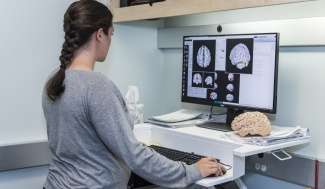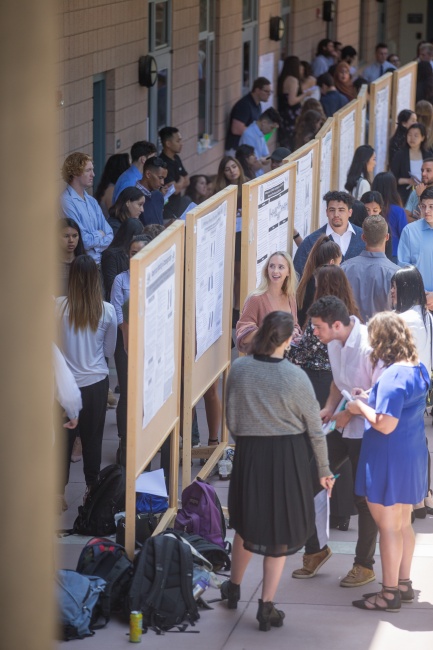
Cognition, Perception, and Cognitive Neuroscience
The graduate program in Cognition, Perception, and Cognitive Neuroscience (CPCN) probes how humans perceive, remember, think, learn, and act upon the world. The program comprises broad faculty interests that include consciousness, problem solving, reasoning, memory, spatial cognition, language, visual perception, attention, human-computer interaction, categorization, the organization of goal directed behavior, laterality of brain function and more.
The faculty in CPCN employ a variety of approaches. These include measurement of performance, assessment of the neural substrates of behavior, and computational/mathematical modeling. Their research is concerned with the development of basic theories of perception and cognition and the biological basis of these processes. There is ongoing application of theories of perception and cognition to real world problems in information technology, issues in selection, training, education, medicine, human factors, and law. The CPCN faculty laboratories are well-funded by national research agencies including the National Science Foundation, the National Institutes of Health, the US Army, and NASA.
The CPCN area has direct access to critical technologies that enable their research. This includes the UCSB Brain Imaging Center and to the Research Center for Virtual Environments and Behavior, both of which are located within the Department of Psychological & Brain Sciences' new building. In addition, the laboratories of the CPCN faculty include state of the art computational resources including cluster and grid engines and a range of specialized equipment, e.g., eye and limb tracking, high density electro-encephalography (EEG), and transcranial magnetic stimulation (TMS) for investigating perception, cognition, and action, thus providing a multitude of research methods as well as affording students the opportunity to develop new methods.
Prospective Students
